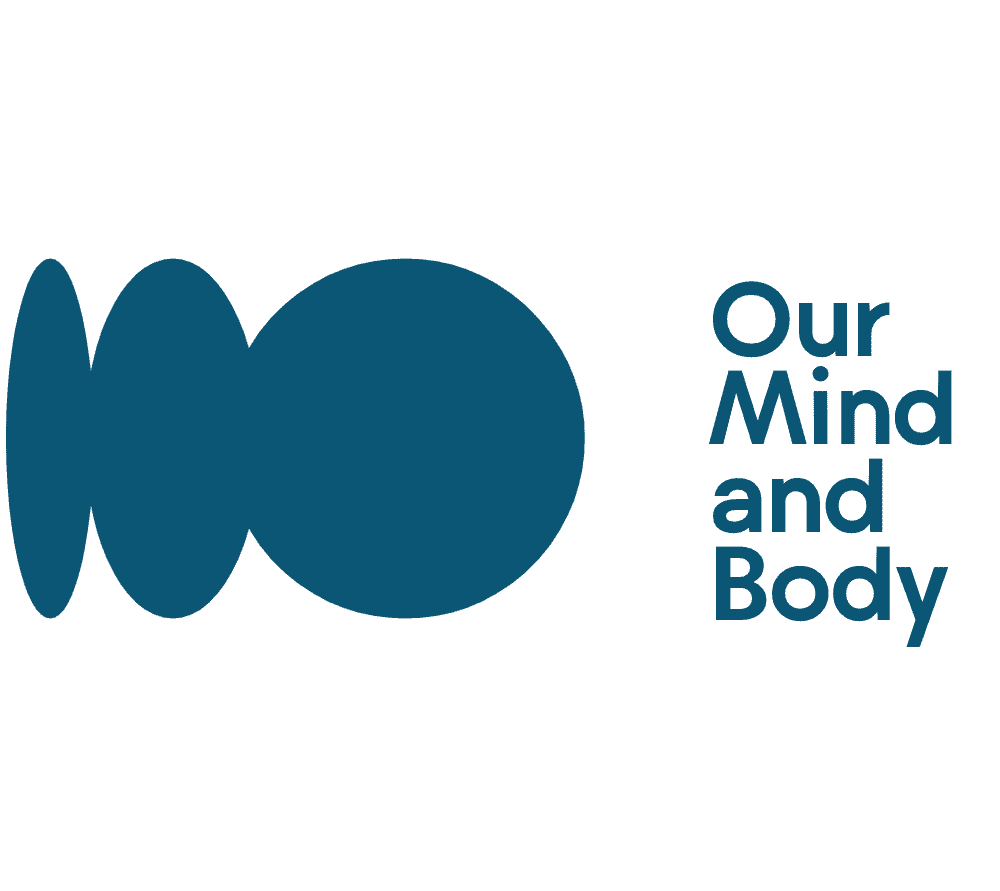Personal Growth
Unlocking the Power of Journaling: How a Regular Practice Can Transform Your Life and Improve Mental Health

Many individuals may perceive journaling as merely a tool for recording thoughts and emotions, but in reality, there are numerous advantages to maintaining a journal. Journaling serves as a powerful strategy for individuals to manage life’s obstacles by transforming it into a daily stress-relieving activity. In this context, journaling entails the act of expressing thoughts and feelings on paper or electronically with the aim of fostering self-awareness and insight.
Journaling can be done in any number of ways, from creative writing exercises to using prompts such as gratitude lists and guided questions. Keeping a regular journaling habit can help individuals identify underlying patterns in their lives which will open up new possibilities for growth and change. Furthermore, it allows them to track progress over time, gain insight about themselves, process complex emotions, and ultimately cultivate more resilience when facing obstacles.
Ultimately, journaling provides an opportunity for exploration and reflection that yields both short-term relief from distressful situations as well as long-term insights that can lead to personal transformation – all while creating a safe space away from judgment or criticism. With these qualities in mind, it becomes clear why developing a consistent practice of journal writing could prove very beneficial for anyone looking to improve their mental health and wellbeing.
Benefits Of Keeping A Journal
Writing in a journal can offer a multitude of benefits and is an effective way to cope with life’s challenges. Keeping track of thoughts, feelings and experiences through the practice of journaling can be incredibly beneficial for stress relief, self-reflection and overall mental wellbeing.
The act of writing allows you to connect more deeply with your innermost feelings by getting them out onto paper. This gives you the opportunity to look at situations from different angles without feeling overwhelmed or judged. Writing about difficult events in your life also helps you process what happened as well as clarify your understanding of it so that it doesn’t take over your thoughts later on. In addition, having a reflective outlet for your emotions can help reduce anxiety and depression levels.
Journaling provides an invaluable tool for managing stress since it encourages mindfulness and introspection which are both helpful in dealing with challenging times. It’s also great for tracking progress when working towards personal goals or making changes in life. By recording successes along the way, it serves as powerful motivation while helping boost confidence and self-esteem too – all essential tools needed during stressful periods! Ultimately, keeping a regular journaling habit will enable you to better understand yourself and how to effectively manage whatever life throws at you.
Journaling offers many practical ways to handle such challenges; however, finding the right type of journal that meets individual needs is key.
Types Of Journals
Journaling is an invaluable tool to help us make sense of the world around us. Like a lighthouse guiding ships through treacherous waters, it can be used as a beacon of clarity and hope in times of distress and confusion. Whether we are seeking insight into our inner thoughts or looking for ways to work through difficult emotions, journaling provides the opportunity to process life’s challenges.
When it comes to types of journals, there are many options at your disposal. Diary writing allows you to record events that have happened throughout the day; reflective journaling encourages deeper introspection about how those experiences made you feel; bullet journaling helps organize tasks and goals with lists and checkboxes; gratitude journaling gives space for expressing appreciation for life’s simple pleasures; travel journaling captures memories from journeys near and far. No matter which type you choose, all forms offer powerful benefits when done regularly.
The potential impact goes beyond just managing stress levels – it also promotes mental clarity, self-awareness, emotional regulation, creative expression and more. With such diverse offerings available, there’s sure to be something perfect for everyone who seeks solace in their pages. Moving forward then, let’s explore how one might get started on this journey…
How To Get Started
Getting started with journaling is easy and can be done in a few simple steps. Here are some tips to help you begin your journey of self-reflection:
- Choose the right type of journal for yourself – Whether it’s an online journal or a physical notebook, pick one that suits your needs best. Consider how much time you want to spend writing in it, what kind of information to include, and any other personal preferences.
- Set aside dedicated time – If you make journaling part of your daily routine, it will become easier to stick with this habit over time. It doesn’t need to take up too much of your day either—even just five minutes per day can make a huge difference!
- Write freely – Don’t worry about grammar or spelling when you write in your journal; free-writing is often more effective than trying to produce perfect prose each time. You don’t even have to start at the beginning—just jump in wherever feels most comfortable for you!
- Make use of prompts – Sometimes having ideas already written down helps get the creative juices flowing faster. Use these as starting points for reflection if needed, or simply skip them altogether if they do not feel relevant to where you’re at today.
Remember that there’s no wrong way to journal so long as it serves its purpose of providing space for honest expression and exploration into our thoughts and feelings without judgment or criticism from others (including ourselves). With practice, keeping a regular journal could prove invaluable on your path towards emotional well-being and growth within yourself! By being mindful and consistent with your writing habit, soon enough reflecting through words will come naturally and effortlessly like second nature! To further enhance this process, let us now look at some helpful tips for effective writing…
Tips For Effective Writing
Many of us are familiar with the idea that journaling can help to cope with life’s challenges, but some may be hesitant to commit to a daily writing practice. To make it easier and more enjoyable, here are some tips for effective writing.
The first step is finding an appropriate outlet for your thoughts. Journaling techniques such as reflective writing, creative writing, and free-writing can provide space for self-expression without fear or judgement. Writing prompts can also offer ideas about what to write about if you feel blocked or uninspired.
Another key point is consistency. Set aside a specific time each day in which you will dedicate yourself to journaling – this allows the habit to become part of your routine and makes it easier to stick with long term. Try not to think too hard – just start by jotting down whatever comes into your head at the moment; even seemingly mundane details like what you ate for breakfast or how your commute was today can create a narrative over time that reveals important insights into our lives.
Finally, remember that journaling isn’t only about expressing negative emotions – it’s also about recognizing successes and identifying areas where we have grown and improved since last week or last month! Keeping track of these small victories will give us the motivation we need when times get tough, so don’t forget to celebrate the good stuff too! With these tips in mind, let’s move on to exploring ways of using self-reflection and journaling as powerful tools in managing stress levels and boosting wellbeing.
Self-Reflection And Journaling
Turning a journaling habit into a daily stress reliever is one of the best ways to cope with life’s challenges. Self-reflection and journaling can be extremely helpful when it comes to improving your mental health, as well as gaining insight on how to navigate through difficult times. This practice helps cultivate inner peace and personal growth by providing an outlet for processing emotions, reflecting on experiences, and exploring ideas.
| Benefits | Action Steps |
|---|---|
| Reduce Stress | Set aside time each day for writing in your journal. |
| Gain Insight | Write down feelings or thoughts that come up during stressful moments. |
| Explore Ideas | Use prompts such as gratitude lists or self-improvement ideas. |
| Improve Mental Health | Recognize triggers & find solutions to manage them better. |
By incorporating this type of mindful reflection into our daily routine, we can create space within ourselves to process our thoughts and work towards living more peacefully with life’s ups and downs. It also allows us to recognize patterns in our behavior that may need addressing so we can make positive changes over time. With consistent effort, you will begin to notice greater clarity in your thinking which leads to healthier decision making overall. Additionally, you will gain useful skills like problem solving abilities, creative expression techniques, communication strategies, and improved relationships with yourself and others around you – all from this simple yet powerful form of self-care! Transitioning into mindfulness and journaling practices could prove very beneficial for anyone looking to improve their quality of life in meaningful ways.
Mindfulness And Journaling
Life can be a rollercoaster of emotions, and it’s easy to get overwhelmed. But with the help of mindfulness and journaling, you can find respite in daily stressors and achieve greater mental health. To start your practice off on the right foot, begin by allowing yourself to observe your thoughts from an impartial perspective. Give them room to exist without judgement or criticism, then let go of any that don’t serve you. Once this is done, pour out your feelings through writing prompts until something resonates within you.
Journaling can offer insight into our thought processes which is key for successful problem solving strategies. It helps us develop healthier habits when we take time each day to reflect on our innermost desires and fears, while also teaching us how to manage challenging situations better. With regular journaling comes clarity and peace of mind – turning a potentially daunting task into a calming ritual that becomes part of our daily routine.
Setting aside dedicated time for journaling not only allows us to express ourselves freely but gives us the opportunity to explore new perspectives as well. As we write down what’s going on inside our heads without worrying about grammar or syntax, it encourages deeper self-reflection so we can gain further awareness over our own lives. We become more conscious of how we’re feeling and why — ultimately leading us towards a path toward personal growth.
Setting Writing Goals
Establishing writing goals is an important step in turning a journaling habit into a daily stress reliever. Setting clear and achievable goals can help you focus on what needs to be done and when, allowing you to stay organized and motivated. Writing down your goals will also give you confidence as you work towards achieving them.
Start by thinking about how much time you are able or willing to dedicate to journaling each day. This could range from five minutes to two hours, depending on your current commitments and lifestyle. Once you have decided on the amount of time that works for you, use this time frame as a guide for setting your goals. For example, if you plan to write for fifteen minutes each day, consider setting a goal of completing one entry per week or even one entry every other day.
By breaking down larger tasks into smaller ones that are more manageable, creating specific goals becomes easier. For instance, rather than saying “I want to reduce my stress levels” try making it more concrete such as “Every Monday I will spend twenty minutes writing about something positive which happened during the weekend.” Knowing exactly what needs to be done helps make success more attainable because it allows us to identify our successes along the way.
As with any endeavor there may be challenges along the way but having clearly defined objectives can help keep us focused and motivated while working through those obstacles. Starting small gives us room to grow over time so we don’t become overwhelmed or discouraged when trying to meet our personal objectives. With some practice and dedication, soon enough building a successful journaling habit will become second nature!
Overcoming Challenges With Journaling
As we discussed in the last section, setting writing goals is a great way to stay on track and have tangible results. But sometimes life’s challenges can be daunting and difficult to overcome. That’s why turning our journaling habit into daily stress relief is essential for those moments when everything feels overwhelming. Here are three ways challenge journaling can help us cope with life’s obstacles:
- Constructive Thinking: Writing down our worries helps us think constructively about overcoming them. We can use our diary as an outlet to explore solutions and potential paths forward. This positive reinforcement encourages us to take actionable steps towards problem-solving rather than staying stuck in anxious rumination.
- Releasing Emotions: It’s ok to feel overwhelmed; it happens to all of us! Journaling allows us to safely express emotions like anger or sadness that may otherwise go unexpressed – this too is part of constructive thinking. Additionally, by getting these feelings off our chest, we free up mental space and reduce stress levels overall.
- Building Self-Awareness: Keeping a diary gives us insights into ourselves that might not otherwise be available to us through external sources alone. Through regular practice, we become more self-aware which enables us better understand where certain thoughts come from and allow acceptances of things out of our control while retaining peace of mind even during challenging times.
By combining goal setting with conscious challenge journaling, we give ourselves the tools needed to navigate hardships without fear or anxiety getting in the way – skills that will serve us well throughout our lives no matter what curveballs life throws at us! As we continue exploring best practices for stress relief, let’s delve further into how developing mindful awareness techniques can also contribute significantly towards reducing tension in any given situation…
Best Practices For Stress Relief
Journaling is a great way to manage stress and turn it into something positive. It allows us to express our feelings in a safe, non-judgmental environment and can be very therapeutic. Here are some best practices for daily journaling as an effective stress reliever:
First, set aside dedicated time each day when you can write uninterrupted. This could be first thing in the morning before starting your day or just before bedtime to reflect on your thoughts from the day that was. Make sure you have all of your supplies ready such as pens, notebooks, and any other items you need to make journaling comfortable. Keep these nearby so they’re easy to grab when it’s time to write.
Next, try different types of writing prompts and techniques like free writing which is where you simply start typing whatever comes to mind without worrying about grammar or structure; stream-of-consciousness writing where you don’t focus too much on details but instead allow yourself to flow with ideas; gratitude journals where you fill pages with what makes you thankful; or prompted writings with questions that lead down paths of self-reflection. Experiment until you find the method that works best for you then stick with it!
Finally, remember there is no right or wrong answer when it comes to journaling – feel free to say anything that is on your heart and mind. Letting go of perfectionism will help reduce stress by allowing yourself permission to explore emotions without fear of judgement or criticism from anyone else. Using this practice regularly can help create a more mindful approach towards managing life’s challenges – one moment at a time!
Frequently Asked Questions
What Type Of Paper Should I Use For Journaling?
When it comes to journaling, one of the most important elements is what type of paper you use. There are so many options available when it comes to journaling supplies and materials, from notebooks and stationery to pens, pencils and markers. It can be overwhelming trying to decide which ones are right for you.
As a professional journaling therapist, my advice is to look at your own individual needs before committing to any particular item. If you need something more lightweight that fits in your pocket or purse, then a notebook could be ideal. On the other hand, if you want something with a bit more texture that will last a while, then consider purchasing journaling stationery or speciality papers specifically designed for writing.
In terms of choosing the material itself, there is no right or wrong answer – it all depends on personal preference. Some people prefer thinner sheets that allow them to write quickly without worrying about smudging; others prefer thicker stock with a smooth surface that won’t bleed through the page as easily. Experimentation may be necessary until you find the perfect combination of paper type and weight for your preferences and style of writing.
So remember: don’t get overwhelmed by the variety of journaling supplies out there – take time to experiment and explore different types until you discover what works best for you!
How Often Should I Write In My Journal?
Recent studies have shown that writing in a journal at least three times per week can significantly reduce stress levels. As such, many people are wondering how often they should write in their journals to reap the benefits of this practice.
As a professional journaling therapist, I recommend keeping a regular journaling habit frequency for optimal results. Writing in your journal regularly is essential if you wish to use it as an effective tool for managing stress and anxiety. However, there is no “one-size-fits-all” answer when it comes to journaling frequency – some people may find that once or twice per day works well while others might prefer writing in their journals only every few days. It really depends on individual preferences and lifestyle choices.
The important thing is to make sure you set aside time each day (or however frequently you decide) specifically for journaling without any distractions. This will help ensure that you always have something meaningful to record in your entries and provide yourself with an outlet for reflecting on various issues that arise during the course of the day. Additionally, don’t forget to keep track of your progress by revisiting older entries from time to time – this will give you insight into how far you’ve come since starting your journey as a journaler!
Journaling can be incredibly beneficial as long as it’s done properly and consistently – so take the opportunity now to start building up your own personal routine!
How Can I Make Journaling Fun?
I get it, journaling can seem like a daunting task. But it doesn’t have to be that way! With the right tools and techniques, you can make journaling fun and rewarding. Here are some tips on how to make your journaling experience enjoyable:
First, explore different types of creative journaling ideas. From bullet journals to habit tracking lists, there’s an infinite number of ways you can use your journal in unique ways. Take time to find the methods which work best for you; you’ll soon realize how fulfilling it is when you discover something new about yourself or gain clarity through writing.
Next, try using prompts as part of your regular practice. Journaling prompts provide structure while still allowing room for creativity and self-expression — perfect for anyone who struggles with getting started on their own ideas. They don’t need to be complicated either– even basic questions such as “How was my day?” or “What am I grateful for?” will help kickstart the process.
Finally, don’t forget that journaling should ultimately be about having fun! There’s no right or wrong way to do this so feel free to experiment with different styles until you find one that suits you best. Once you’ve settled into a routine, it won’t take long before you start seeing all the benefits that come from making journaling a daily habit.
Are There Any Online Journaling Tools I Can Use?
Are there any online journaling tools I can use? This is a great question, and one that more people are asking as the digital age continues to expand our options for managing stress in different ways. Journaling isn’t just about writing down thoughts or feelings; it’s also about finding the right tool to make it easier and more enjoyable. Digital diaries and other online journaling tools may be just what you need to turn your daily habit into an effective stress reliever.
First off, let’s explore some of the many benefits of using online journaling tools:
- They offer convenience – no matter where you are, all you need is an internet connection
- You can access them at any time of day or night
- They provide safe storage solutions so that your entries remain private
- There are lots of creative features such as templates and themes which add fun to your record keeping
Having looked into these advantages, we can now consider how they might help us cope with life’s challenges. Digital journaling provides a way to express ourselves without fear of judgement or criticism from others, creating an open and comfortable space for personal exploration and growth. Additionally, having quick access to our journals makes organizing thoughts much easier by providing easy-to-navigate search functions and categorization systems – perfect for uncovering insights or tracking progress on long-term goals!
Lastly, if we feel like getting creative there are plenty of exciting interactive elements available through digital diaries such as audio recordings, video clips, photos and even GIFs — making our entries come alive in unique ways that bring out our personality even further! With this kind of variety at hand, maintaining a regular practice suddenly doesn’t seem so daunting after all – allowing us to engage with our innermost selves deeply while still enjoying the entire process.
Journaling has something special to offer everyone — whether it’s used as a calming activity during stressful times or simply enjoyed as a hobby — but with the help of modern technology we have access to new levels of creativity and convenience when it comes to expressing ourselves digitally. So grab your device, set up your account today and start exploring the wonderful world of online diary keeping!
How Do I Keep My Journal Entries Private?
When it comes to journaling, privacy and security are vitally important. Keeping your entries private is a key part of creating a secure journaling experience that can be beneficial for managing stress. There are several ways you can ensure the content in your journal remains safe from prying eyes.
One of the most straightforward approaches to keeping your journal entries private is by investing in an online tool with strong encryption features. Look for services that offer two-factor authentication or additional login layers such as biometrics so only you have access to your information. This adds extra levels of protection against hackers and others who may try to gain access to your personal data.
You should also consider setting up password protected folders on both cloud storage and physical devices where you store your journals digitally. In addition, think about using an alternate name when signing up for applications or websites related to journaling if anonymity is important to you. Taking these steps will help keep any sensitive material stored in your private journals away from potential intruders while still allowing you easy access whenever needed.
It’s essential that we protect our mental health by taking whatever precautions necessary to make sure our thoughts remain free from intrusion and interference. By following the advice above, we can create a secure environment for ourselves that allows us to express our innermost feelings without fear of them being seen by anyone else but us.
Conclusion
It is important to remember that journaling can be a powerful tool for relieving stress and helping us cope with life’s challenges. By taking the time to record our thoughts and feelings, we create an opportunity to process our emotions in a productive way, allowing us to move through difficult times more easily. No matter what kind of paper you use or how often you write, it’s important to make sure that your journal entries are always private and secure. We all have unique needs when it comes to finding ways of dealing with stress and challenging situations, but no matter where we turn, one thing remains true: Journaling has the power to help us work through any issue, big or small. So why not give it a try? You never know—it could very well prove to be the best daily stress reliever!
Meet Kalinda, the passionate and visionary Editor-in-Chief of OurMindAndBody.com. Kalinda is a beacon of light in the realm of holistic well-being, and her mission is to positively impact the lives of others by inspiring them to embrace a healthier and more fulfilling lifestyle.
With a deep-rooted love for meditation, yoga, and spirituality, Kalinda’s journey toward self-discovery and personal growth started at a young age. She found solace and strength in these practices, which not only helped her cope with the challenges of life but also provided her with a profound sense of purpose. Eager to share the transformative power of these ancient disciplines, Kalinda embarked on a path to spread awareness and understanding.
Personal Growth
The Spiritual Significance Of Shooting Stars: Meaning And Symbolism

Have you ever gazed up at the night sky and witnessed a meteor streaking through the darkness? It’s a moment that mesmerizes us and fills us with wonder and awe.
Shooting stars, both scientifically and spiritually, hold a profound significance. Scientifically, they provide valuable insights into the history and composition of our universe.
But beyond the realm of science, shooting stars carry a deeper, more spiritual meaning. In this article, we will explore the spiritual significance of shooting stars, delving into their symbolism and the profound impact they can have on our lives.
Key Takeaways
- Seeing a shooting star spiritually is believed to bring good luck and positive energy
- Many cultures associate shooting stars with messages from the spiritual realm or the universe
- Shooting stars are often interpreted as a sign of new beginnings or endings
- Symbolic meanings of shooting stars include new ideas, wishes, dreams, and spiritual journeys
What are shooting stars?
I’ve learned that shooting stars are natural phenomena caused by debris from space entering the Earth’s atmosphere, and they burn up, creating a bright streak of light across the sky.
It’s fascinating to think about the mythological origins and cultural beliefs surrounding shooting stars. In many cultures, they are seen as messages from the spiritual realm or the universe. Some believe that seeing a shooting star spiritually brings good luck and positive energy, while others associate them with new beginnings or endings.
The symbolic meanings attached to shooting stars can vary widely, depending on individual perspectives and cultural beliefs. For some, they represent wishes, dreams, and spiritual journeys. Others may see them as signs of transformation, growth, or even bad luck.
Regardless of the interpretation, witnessing a shooting star always leaves a lasting impression, igniting a sense of wonder and awe in those fortunate enough to see one.
Scientific explanation
Astronomers study shooting stars using telescopes and instruments to provide a scientific explanation for the phenomenon. Through the exploration of shooting stars, scientific research on shooting stars has revealed fascinating insights into the celestial world. Here are four key findings:
-
Understanding celestial body movement and composition: By studying shooting stars, scientists gain valuable knowledge about how celestial bodies move and their composition. This research helps piece together the history of our Solar System.
-
Insights into the formation of celestial bodies: Analyzing the fallen meteors from shooting stars allows scientists to determine the age and make-up of the Solar System. This information provides valuable insights into the formation of celestial bodies.
-
Unveiling the evolution of the Solar System: Meteor composition analysis sheds light on the evolution of the Solar System. By studying shooting stars, scientists can understand the presence of certain elements in space and gain a deeper understanding of the Solar System’s evolution.
-
Enhancing appreciation for the phenomenon: Understanding the scientific explanation behind shooting stars enhances our appreciation for this awe-inspiring phenomenon. It allows us to marvel at the beauty of shooting stars while also acknowledging the immense knowledge that scientific research has provided.
Regular occurrence
During meteor showers, I love to search for shooting stars in the night sky. It’s a magical experience that fills me with wonder and awe. To make the most out of these celestial events, it’s important to know the meteor shower dates and the best locations for stargazing. Meteor showers happen regularly throughout the year, with the Perseids meteor shower being one of the most well-known, occurring in August. But there are many other meteor showers that take place annually, each with different levels of activity. To increase your chances of seeing shooting stars, find a location away from city lights for better visibility and choose a spot with an unobstructed view of the sky. By being patient and allowing your eyes to adjust to the darkness, you can fully immerse yourself in the beauty of these shooting stars.
Importance of meteor composition analysis
Analyzing the composition of fallen meteors is crucial for understanding the age and make-up of the Solar System. Meteor shower analysis provides valuable insights into the formation of celestial bodies and the evolution of our Solar System.
By studying the chemical composition of these fallen meteors, scientists can unravel the mysteries of our planetary system. It reveals information about the presence of certain elements in space and helps piece together the story of celestial body formation.
This analysis not only enhances our understanding of the Solar System but also deepens our appreciation for the beauty and complexity of the universe. It is through the study of meteor composition that we gain a glimpse into the vastness and wonder of the cosmos, igniting a sense of inspiration and awe within us.
Tips for observing
To enhance your experience of observing shooting stars during meteor showers, it is helpful to find a location away from city lights for better visibility. The best locations for stargazing are usually in remote areas where light pollution is minimal. Choose a spot with an unobstructed view of the sky to maximize your chances of seeing shooting stars.
It’s also important to be patient and allow your eyes to adjust to the darkness. Additionally, if you’re interested in capturing the beauty of shooting stars through photography, there are a few tips to keep in mind. Use a tripod to keep your camera steady, set a wide aperture to let in more light, and use a long exposure to capture the movement of the shooting stars.
With these tips, you can fully immerse yourself in the awe-inspiring experience of witnessing shooting stars during meteor showers.
Positive spiritual beliefs
Experiencing a shooting star fills me with a sense of positivity and brings a feeling of good luck and possibility. It’s as if the universe is sending a message of encouragement and reminding me of the infinite potential within myself.
When I see a shooting star, I take a moment to reflect and express gratitude for the blessings in my life. I then set positive intentions for the future and visualize my dreams and desires manifesting into reality. This act of manifestation is a powerful spiritual practice that helps me stay focused on my goals and allows me to attract the positive energy needed to achieve them.
It’s a reminder that I have the power to create my own destiny and that the universe is conspiring in my favor. So, the next time you witness a shooting star, take a moment to embrace its positive energy and utilize it as a catalyst for your own personal growth and transformation.
Negative spiritual beliefs
When I witness a shooting star, it fills me with a sense of unease and foreboding, as if it is a sign of impending doom or misfortune. In many cultures, shooting stars are associated with negative meanings and superstitions. Some believe that seeing a shooting star is a symbol of death or a bad omen. These beliefs stem from ancient superstitions and cultural interpretations passed down through generations. The idea of a shooting star representing the end of something or a warning of impending tragedy can be deeply ingrained in our subconscious. This negative symbolism attached to shooting stars serves as a reminder to cherish the present moment and appreciate the blessings in our lives. It encourages us to reflect on our actions and make positive changes to avoid any potential negative outcomes.
| Negative Symbolism | Superstitions about Shooting Stars |
|---|---|
| Death | A sign of impending tragedy |
| Misfortune | Bad luck associated with shooting stars |
| Omen | A warning of negative events |
| Impending doom | A sense of foreboding and unease |
Reflection and gratitude
After witnessing a shooting star spiritually, it is natural to be filled with a sense of wonder and awe. The beauty and fleeting nature of these celestial phenomena leave a lasting impression on our hearts and minds.
As I reflect on the spiritual significance of shooting stars, I am reminded of the importance of gratitude in our lives. Taking a moment to pause and appreciate the magic that unfolds before us can be a powerful spiritual practice. It allows us to connect with the universe and acknowledge the infinite possibilities that exist.
Expressing gratitude for the opportunity to witness such a breathtaking sight opens our hearts and minds to the abundance of blessings that surround us. In these moments of reflection and gratitude, we align ourselves with the positive energy of the universe, inviting more miracles and blessings into our lives.
Cultural interpretations
Cultural interpretations of shooting stars vary widely, with different belief systems attributing various messages and events to their appearance. Throughout history, these celestial phenomena have held immense cultural significance, captivating the imaginations of people from all walks of life.
Here are a few examples of how different cultures have interpreted the spiritual meaning of shooting stars:
-
In ancient Greek mythology, shooting stars were seen as a sign of divine favor or displeasure. They were believed to be the souls of deceased loved ones, guiding and protecting those who witnessed them.
-
Native American tribes viewed shooting stars as communication from the spirit world. They believed that these celestial visitors brought messages from ancestors or spirit guides, offering guidance and wisdom.
-
In Chinese culture, shooting stars are associated with luck and prosperity. It is believed that making a wish upon a shooting star can bring good fortune and help manifest one’s desires.
-
In Hinduism, shooting stars are seen as a symbol of transformation and the cycle of life. They represent the journey of the soul and the potential for spiritual growth and enlightenment.
These cultural interpretations highlight the deep-rooted historical significance of shooting stars and the diverse ways in which they have been understood and revered. They remind us of the interconnectedness of humanity and the universal human desire to find meaning in the natural world.
Symbolic representations
As I delve deeper into the spiritual significance of shooting stars, I can’t help but marvel at the myriad of symbolic representations attached to these celestial wonders.
Beyond cultural interpretations, shooting stars hold a profound connection to astrology and spiritual rituals. They are seen as celestial messengers, carrying messages from the universe to guide us on our spiritual paths.
Many spiritual rituals involve making wishes or setting intentions when a shooting star streaks across the night sky, believing that these desires will manifest into reality. The fleeting nature of shooting stars reminds us to cherish the present moment and seize opportunities for growth and transformation.
They ignite a sense of wonder and awe, inspiring us to pursue our dreams and aspirations. In this vast universe, shooting stars serve as spiritual beacons, reminding us of the infinite possibilities that await us on our journey.
Inspiration and motivation
Experiencing a shooting star ignites a deep sense of inspiration and motivation within me. It reminds me of the infinite possibilities that exist in the universe and the power of our dreams and aspirations. When I gaze upon a shooting star, I am reminded of the importance of finding purpose and pursuing our true passions in life. It serves as a gentle nudge from the universe, encouraging me to take action and follow my heart’s desires. The shooting star represents the fleeting nature of life and the importance of seizing every moment. It reminds me to never give up on my dreams, no matter how big or small they may be. Witnessing a shooting star fills me with a sense of wonder and awe, and it reinforces my belief in the beauty and magic of the world around us.
| Finding Purpose | Pursuing Dreams |
|---|---|
| – Shooting stars remind us of the importance of finding our purpose in life. | – They inspire us to pursue our dreams and aspirations. |
| – They serve as gentle reminders to follow our hearts and do what truly makes us happy. | – Shooting stars symbolize the infinite possibilities that exist in the universe. |
| – The fleeting nature of shooting stars reminds us to seize every moment and make the most of our lives. | – They encourage us to take action and not be afraid to chase after our dreams. |
| – Witnessing a shooting star sparks a sense of motivation and reminds us of the beauty and magic of the world. | – They reinforce our belief that anything is possible if we have the courage to pursue it. |
Magical and enchanting experience
The sight of a shooting star creates a mesmerizing and enchanting moment that captivates my senses. As I gaze at the night sky, a shooting star streaks across the darkness, leaving behind a trail of shimmering light.
In that fleeting instant, I feel a deep sense of connection with the universe, as if the vast expanse of space is reaching out to touch my soul. It is a reminder of the infinite possibilities that exist in the universe and within myself.
The magical nature of shooting stars ignites a spark within me, awakening my spirit and inspiring me to embrace my own journey of self-discovery. In that brief encounter with the shooting star, I am reminded to stay true to my path, to follow my dreams, and to trust in the power of the universe to guide me towards my highest purpose.
Frequently Asked Questions
Are shooting stars actually stars?
No, shooting stars are not actually stars. They are debris from space, such as meteoroids, that enter the Earth’s atmosphere and burn up, creating a bright streak of light across the sky.
Can shooting stars grant wishes?
Shooting stars have captivated human imagination for centuries, with magical folklore suggesting they can grant wishes. While scientific explanations reveal their true nature, the idea of wishes coming true adds a sense of wonder and hope to the experience.
What do shooting stars symbolize in different cultures?
Cultural interpretations of shooting stars vary widely, reflecting the diverse beliefs and historical significance of different cultures. They can symbolize new beginnings, messages from the spiritual realm, hope, and inspiration, among other concepts.
Are there any negative beliefs associated with shooting stars?
Witnessing a shooting star can be a breathtaking experience, but there are some negative beliefs associated with them. Some cultures view shooting stars as omens of death or bad luck, which can have a disheartening effect on those who witness them.
How can witnessing a shooting star impact someone’s spiritual journey?
Witnessing a shooting star can have a profound impact on my spiritual journey. It reminds me of the vastness of the universe and my connection to it. It inspires personal growth, ignites a sense of wonder, and encourages me to pursue my dreams.
Conclusion
As I gaze up at the night sky, witnessing the fleeting beauty of a shooting star, I am reminded of the profound spiritual significance that these celestial wonders hold. They are more than just natural phenomena; they are messengers from the universe, igniting a sense of wonder and hope within our souls.
Like the shooting star that streaks across the darkness, we too have the power to leave a lasting impression and inspire others with our dreams and aspirations. Just as the shooting star lights up the night sky, let us illuminate our own paths and embrace the magic and enchantment of life’s journey.
Say hello to Cypress, the soulful wordsmith behind the insightful articles at OurMindAndBody.com. Cypress is a gifted writer who weaves words with grace and precision, using language as a powerful tool to inspire, heal, and uplift the spirits of readers.
With a background in literature and a passion for personal growth, Cypress brings a unique perspective to the world of well-being and spirituality. Having experienced the transformative effects of meditation and yoga firsthand, Cypress is deeply connected to the essence of these practices and their potential to enrich lives.
Personal Growth
The Spiritual Significance Of The Name James

Did you know that the name James has deep spiritual significance? Coming from Hebrew, meaning ‘supplanter’ or ‘holder of the heel,’ the name James represents persistence, courage, and the skill to overcome obstacles.
Numerologically, it carries a value of 11, symbolizing leadership and spiritual enlightenment. Astrologically aligned with Mars, it embodies courage and assertiveness. The symbolic significance of its letters further reveals optimism, sensitivity, and intuition.
Additionally, James is associated with reliability, loyalty, and leadership, offering protection and guidance in various cultures.
Join me as we explore the profound spiritual meaning of the name James.
Key Takeaways
- The name James has a spiritual meaning of persistence, courage, and overcoming obstacles.
- Numerologically, the name James has a value of 11, indicating leadership qualities and spiritual enlightenment.
- Astrologically, the name James corresponds with the planet Mars, symbolizing courage and assertiveness.
- The letters in the name James, such as J and S, hold symbolic significance, representing optimism, excitement, sensitivity, and intuition.
Origin and Meaning
The origin and meaning of the name James is quite fascinating. It is derived from the Hebrew name Yaakov, which means supplanter or holder of the heel.
In a spiritual context, the name James represents someone who is persistent, courageous, and willing to overcome obstacles.
This name holds great significance in numerology and astrology as well. Numerologically, James has a numerical value of 11, indicating leadership qualities and spiritual enlightenment. Astrologically, the name corresponds with the planet Mars, signifying courage and assertiveness.
The symbolic significance of the letters in James adds depth to its meaning. The J represents optimism and excitement for life, while the S signifies sensitivity and intuition.
Overall, the name James carries a powerful spiritual meaning. It reflects qualities of strength, determination, and the ability to rise above challenges.
Numerological Symbolism
Numerology unveils the captivating power behind the numeric value of my name, as the number 11 ignites a blazing trail of leadership and spiritual enlightenment. This numerical value signifies my innate ability to lead and inspire others, as well as my deep connection to the spiritual realm.
I am driven by a strong sense of purpose and a desire to make a positive impact on the world. The number 11 also represents spiritual enlightenment, indicating that I am constantly seeking higher truths and wisdom.
It is through my leadership qualities and dedication to spiritual growth that I am able to navigate the challenges and obstacles that come my way. Numerology allows me to understand and embrace the profound significance of my name, James, as it illuminates the path of my life journey.
Astrological Associations
Astrologically speaking, Mars represents my courage and assertiveness, providing me with the strength to face challenges head-on. In numerology, the name James corresponds with the numerical value of 11, indicating my leadership qualities and spiritual enlightenment.
This celestial connection allows me to tap into my innate sense of determination and fearlessness. As a result, I am able to navigate through life’s obstacles with unwavering resolve.
The position of each letter in my name holds symbolic significance as well. The J signifies my optimism and excitement for life, while the S represents my sensitivity and intuition. These qualities, combined with the influence of Mars, shape my life journey and contribute to my character.
The name James, with its spiritual meaning of persistence and courage, serves as a constant reminder of my ability to overcome any challenge that comes my way.
Symbolic Significance of Letters
In understanding the symbolic significance of letters in my name, I find that the J represents my optimism and excitement for life, while the S signifies my sensitivity and intuition.
The letter J is associated with the planet Jupiter, which symbolizes expansion and growth. This resonates with my personality as I always strive for personal and spiritual development.
The S, on the other hand, correlates with the moon, representing emotions and intuition. I am highly empathetic and intuitive, often relying on my instincts to guide me in making decisions.
Understanding these symbolic meanings of the letters in my name gives me a deeper insight into my life journey and the qualities that define me. It allows me to embrace and cultivate these qualities, leading to a more fulfilling and purposeful existence.
Biblical References
When exploring the biblical references associated with my name, I feel a deep connection to the stories of James the son of Zebedee and James the son of Alphaeus, as they exemplify the strength and resilience required to navigate life’s challenges.
James the son of Zebedee was one of the twelve apostles chosen by Jesus, and he played a significant role in spreading the teachings of Christianity. He was known for his unwavering faith and commitment, even in the face of persecution and adversity.
James the son of Alphaeus, also known as James the Less, was another disciple of Jesus and was known for his humility and dedication to serving others.
Both Jameses serve as powerful examples of how faith and determination can guide us through difficult times and inspire us to lead lives of purpose and devotion.
Famous Namesakes
One of the most well-known individuals who shares my name is the actor James Franco. He is a versatile and talented actor who has appeared in numerous films and television shows.
-
First, imagine being on the set of a blockbuster film with James Franco. The cameras are rolling, and he effortlessly embodies his character, captivating the audience with his powerful presence and emotional range.
-
Next, picture attending a prestigious awards ceremony alongside James Franco. He gracefully walks the red carpet, exuding confidence and style. As he accepts his well-deserved award, his charismatic smile lights up the room.
-
Finally, envision sitting in a theater, watching a play directed by James Franco. His creative vision and attention to detail shine through, transporting the audience into a world of art and imagination.
These scenarios illustrate the impact and influence that someone with the name James can have in the entertainment industry, showcasing their talent, dedication, and ability to captivate audiences.
Cultural Beliefs and Traditions
Growing up in a close-knit Italian-American community, I vividly remember the annual Feast of Saint James celebration, where families would come together to honor their patron saint with a lively parade, delicious food, and traditional music and dancing. This cultural belief and tradition held a significant spiritual meaning for us, as Saint James was believed to offer protection and guidance. The celebration allowed us to connect with our faith and heritage, and it served as a reminder of the values associated with the name James, such as reliability, loyalty, and leadership.
To paint a picture of the Feast of Saint James, here is a table showcasing some of the elements that made this celebration so special:
| Feast of Saint James Celebration | |
|---|---|
| Lively Parade | Delicious Food |
| Traditional Music | Dancing |
| Community Gathering | Honoring Patron Saint |
This annual event not only brought our community together but also reinforced the spiritual significance of the name James in our lives.
Nicknames and Variations
I’ve always loved the various nicknames and variations of my name, James. It is fascinating to see how this name can be transformed and adapted in different cultures and contexts.
In English-speaking countries, common nicknames for James include Jim, Jimmy, and Jamie. These variations add a sense of familiarity and informality to the name, making it more approachable.
In other cultures, there are different variations of the name James that carry their own unique meanings and connotations. For example, in Spanish, the name Santiago is a common variation of James, which means ‘Saint James.’ This variation emphasizes the spiritual and religious significance of the name.
Overall, the nicknames and variations of the name James showcase the versatility and adaptability of this timeless name.
Frequently Asked Questions
Is there a specific spiritual ritual or ceremony associated with the name James?
There is no specific spiritual ritual or ceremony associated with the name James. The spiritual significance of the name lies in its meaning and symbolism, representing qualities such as persistence, courage, and overcoming obstacles.
Are there any specific gemstones or crystals that are believed to enhance the spiritual energy of the name James?
Oh, the wonders of gemstones and crystals! When it comes to enhancing the spiritual energy of the name James, I’m afraid there isn’t a specific gem associated with it. But fear not, for the power lies within the name itself.
Does the spiritual significance of the name James change depending on the person’s astrological sign?
The spiritual significance of the name James does not change depending on a person’s astrological sign. The name James represents persistence, courage, and overcoming obstacles in a spiritual context, regardless of astrological influences.
Are there any specific prayers or mantras that are often associated with the name James?
There are no specific prayers or mantras exclusively associated with the name James. However, individuals named James can choose to use any prayer or mantra that resonates with their personal beliefs and spiritual practices.
Are there any specific spiritual practices or traditions that individuals with the name James are encouraged to follow?
As an individual with the name James, there are no specific spiritual practices or traditions that I am encouraged to follow. However, the name James symbolizes persistence, courage, and a willingness to overcome obstacles, which can guide my spiritual journey.
Conclusion
In conclusion, the name James holds immense spiritual significance.
Its Hebrew origin, Yaakov, signifies perseverance and the ability to overcome obstacles.
Numerologically, the value of 11 represents leadership and spiritual enlightenment.
Astrologically, Mars symbolizes courage and assertiveness, attributes associated with the name James.
The letters in the name also contribute to its symbolic significance, with J representing optimism and S signifying sensitivity and intuition.
The biblical references and cultural beliefs further enhance the name’s spiritual meaning.
Overall, the name James is a powerful symbol of perseverance, courage, and triumph in the face of challenges, making it truly remarkable.
Say hello to Cypress, the soulful wordsmith behind the insightful articles at OurMindAndBody.com. Cypress is a gifted writer who weaves words with grace and precision, using language as a powerful tool to inspire, heal, and uplift the spirits of readers.
With a background in literature and a passion for personal growth, Cypress brings a unique perspective to the world of well-being and spirituality. Having experienced the transformative effects of meditation and yoga firsthand, Cypress is deeply connected to the essence of these practices and their potential to enrich lives.
Personal Growth
The Spiritual Significance Of Black Candle Jars: Unlocking Symbolism And Personal Transformation

Step into the mystical world of black candle jars, where the soft illumination not only brightens a room but also touches the depths of your soul. These jars serve as a mystical tool, unlocking pathways to change, cleansing, and safeguarding.
They are more than mere objects; they are gateways to personal growth and spiritual connection. As we delve into the symbolism behind black candle jars, we embark on a journey of self-discovery, where shadows are embraced, negativity is released, and transformation becomes our guiding light.
Key Takeaways
- Black candle jars are associated with purification, protection, and banishing negative energy in one’s personal spiritual journey.
- The causes of black candle jars can vary, including the quality of wax, low-quality wick, improper burning techniques, and the impact of candle colors.
- Understanding the spiritual meaning and reasons for candle blackening is important for interpreting the symbolism behind black candle jars.
- Candle colors have specific meanings and associations, and selecting the appropriate color can enhance the desired outcome in spiritual practices.
What is it?
I know that black candle jars have a spiritual significance and can unlock symbolism and promote personal transformation.
Understanding symbolism is like peering into the depths of our souls, searching for hidden truths and untapped potential.
Just as the black candle jar holds the flickering flame, it also holds the power to ignite our inner fire. It symbolizes spiritual purification, a cleansing of the soul, and a release of negative energy.
When we embrace the black candle jar in our rituals, we invite protection and banish the darkness that may cloud our minds.
It is through this act of lighting the black candle jar that we embark on a journey of self-discovery and transformation. As the flame dances and casts its mesmerizing glow, we are reminded of the power within us to illuminate our path and create our own destiny.
Causes and Prevention
Understanding the causes of blackening in candle jars and implementing proper burning techniques can help prevent this issue. Prevention is key when it comes to maintaining the quality of our candles and maximizing their spiritual significance.
Just as in life, we must be mindful of our actions and choices to avoid negative outcomes. By taking the time to select high-quality wax and wicks, we can ensure a clean and pure burning experience. It is essential to pay attention to the fragrance oils we use, as excessive usage can contribute to blackening.
Furthermore, mastering proper burning techniques, such as trimming the wick and allowing the candle to burn evenly, will enhance the longevity of our candles and prevent blackening.
Let us strive to improve the quality of our candles, allowing their vibrant light to illuminate our spiritual journey.
Interpreting Meaning
Exploring the different interpretations of the meaning behind blackened candle jars enhances my understanding of their role in my spiritual journey. As I delve deeper into the symbolism associated with these jars, I uncover new layers of meaning and insight. Each blackened jar represents a transformation, a purification of the soul, and a shield against negativity. It serves as a visual reminder of the power I hold to banish darkness and embrace the light within.
To aid in my exploration, I have created a table that captures the essence of the spiritual growth that can be achieved through the interpretation of black candle jars:
| Symbolism | Spiritual Growth | Interpretation |
|---|---|---|
| Transformation | Embracing change | Letting go of old patterns and beliefs to make space for personal growth and evolution. |
| Purification | Releasing negativity | Cleansing the spirit of negative energy and fostering a sense of inner peace. |
| Protection | Shielding from harm | Creating a spiritual barrier to safeguard against external influences and negative forces. |
By understanding the diverse interpretations of black candle jars, I am able to harness their power and incorporate them into my daily rituals for spiritual growth. They serve as a constant reminder of the transformative journey I am on and the importance of embracing the symbolism they hold.
Candle Colors and Meanings
Selecting the appropriate color of a candle allows for a deeper connection to desired outcomes and enhances the effectiveness of spiritual practices. Candle colors hold significant meanings and can be used to amplify intentions in our daily rituals.
Combining candle colors is like blending different hues on a canvas, creating a masterpiece of energy and intention. Just as an artist combines shades to evoke specific emotions, we can combine candle colors to enhance our intended outcomes.
For example, combining a black candle, symbolizing protection and banishing negativity, with a white candle, symbolizing purity and clarity, can create a powerful synergy in our spiritual journey.
It is through this intentional blending of colors that we find ourselves truly immersed in the transformative power of black candle jars, unlocking their symbolism and experiencing personal transformation.
Impact on Spiritual Journey
Experiencing the impact of black candle jars on my spiritual journey has been profound and transformative.
Exploring the symbolism behind these jars, I have discovered a powerful tool for harnessing transformation in my life. Like the darkness that precedes the dawn, the black candle jars represent the necessary journey into our own shadows and depths.
As the candle burns, it purifies, banishing negative energy and paving the way for personal growth. Just as the black candle jars release their black residue, I too release the negativity and limitations that no longer serve me.
Through this process, I am able to ground myself, finding stability and strength amidst the chaos of life. The black candle jars symbolize the journey of transformation, reminding me that from darkness comes light, and from ashes rises the phoenix.
During my spiritual journey, I have found that incorporating black candle jars has had a profound impact on my growth and transformation. Exploring the symbolism behind these jars has allowed me to delve deeper into my inner world, unlocking hidden aspects of myself and embracing transformation.
The black candle jars serve as powerful tools, symbolizing the journey of purification and protection. They act as a mirror, reflecting the shadows within, urging me to release negativity and embrace the light. As I light the candle and watch the black residue slowly melt away, I am reminded of the power of transformation and the constant shedding of the old to make way for the new.
Embracing the spiritual significance of black candle jars has allowed me to align my beliefs and values, grounding me in my journey towards self-discovery and personal growth. With each candle ritual, I am reminded of the power of intention and the importance of focus.
These black candle jars have become a constant companion, enhancing my spiritual connection and deepening my understanding of myself and the world around me.
Incorporating black candle jars into my daily rituals has deepened my spiritual connection and heightened my understanding of myself and the world around me.
Exploring the symbolism behind these jars has allowed me to embrace personal transformation in a profound way. The black residue left behind after burning a candle represents the release of negativity and the purification of my spirit. It is a reminder that through shadow work and grounding, I am able to banish negative energy and protect myself from its influence.
Each time I light my black candle jar, I am reminded of the transformative power within me and the importance of releasing what no longer serves me. It is a symbol of strength and resilience, guiding me on my spiritual journey towards growth and enlightenment.
By embracing the spiritual significance of black candle jars, I have unlocked a deeper understanding of myself and the world, allowing me to walk the path of personal transformation with intention and purpose.
Using black candle jars in my daily rituals has greatly deepened my connection to the spiritual realm and enhanced my personal growth journey. Exploring the symbolism behind these jars has allowed me to tap into a deeper understanding of myself and the world around me.
Each time I light a black candle, I am reminded of the power of intention and the importance of focus in my spiritual practices. The black residue left behind after burning represents the transformation and purification that takes place within me. It is a visual reminder of the negative energy and emotions that I release, allowing space for positivity and light to enter.
Through my connection with these rituals, I have found a sense of grounding and protection, enabling me to navigate life’s challenges with grace and resilience.
Frequently Asked Questions
Are there any specific rituals or practices associated with using black candle jars in spiritual journeys?
Exploring the symbolism of black candle jars in different spiritual practices, I’ve discovered rituals that enhance personal transformation. Through my own experiences, I’ve witnessed the power of intention and the profound impact of using black candle jars on my spiritual journey.
Can black candle jars be used for manifesting positive outcomes, or are they primarily used for banishing negativity?
Black candle jars have a transformative power beyond banishing negativity. By harnessing the power of intention, they can manifest positivity and guide us on a journey of personal growth and spiritual enlightenment.
How can one determine the quality of wax and wick when purchasing black candle jars?
When purchasing black candle jars, I focus on determining the quality of wax by looking for a smooth texture and clean burn. I also check the wick quality by ensuring it is sturdy and centered for an optimal candle-burning experience.
Are there any specific candle burning techniques or care instructions that can help prevent blackening of the jar?
To prevent blackening of the jar, I’ve discovered some candle cleaning techniques that are truly magical. By regularly trimming the wick, avoiding drafts, and cleaning with vinegar, I keep my candles shining bright, preventing soot buildup.
Can the spiritual meaning of black candle jars vary across different cultures or belief systems?
Cultural variations and belief system influences can shape the spiritual meaning of black candle jars. Like diverse colors blending on a canvas, our interpretations intertwine, creating a tapestry of symbolism that reflects our unique spiritual journeys.
Conclusion
As I reflect on the profound journey of the black candle jar, I am reminded of the power it holds to transform our beings.
Like a guiding light in the darkness, this sacred vessel purifies our souls, banishing negativity and protecting our spirits.
Its symbolism is a gateway to personal growth, a path towards understanding and connection.
With each flicker of its flame, we embark on a spiritual quest, embracing the colors that represent our intentions.
Let us unlock the secrets of the black candle jar and ignite the fire of transformation within ourselves.
Say hello to Cypress, the soulful wordsmith behind the insightful articles at OurMindAndBody.com. Cypress is a gifted writer who weaves words with grace and precision, using language as a powerful tool to inspire, heal, and uplift the spirits of readers.
With a background in literature and a passion for personal growth, Cypress brings a unique perspective to the world of well-being and spirituality. Having experienced the transformative effects of meditation and yoga firsthand, Cypress is deeply connected to the essence of these practices and their potential to enrich lives.
-

 Personal Growth2 months ago
Personal Growth2 months agoThe Power Of Kindness: Cultivating Happiness, Connection, And Personal Growth
-

 Meditation1 day ago
Meditation1 day agoUnderstanding Spiritual Attacks: Types, Signs, And Protection
-

 Aura1 week ago
Aura1 week agoUnderstanding The Grey Aura: Balance, Neutrality, And Personal Growth
-

 Spirituality3 months ago
Spirituality3 months agoThe Power Of Spiritual Connection: Definition, Importance, And Ways To Achieve
-

 Spirituality2 months ago
Spirituality2 months agoStarting Your Spiritual Journey: Self-Reflection, Growth, And Connection
-

 Spirituality3 months ago
Spirituality3 months agoConnecting Spirituality And Daily Life: Embracing Universal Values
-

 Spirituality3 months ago
Spirituality3 months agoThe Mystical Realms: Exploring Spiritual Dimensions
-

 Meditation3 weeks ago
Meditation3 weeks agoThe Symbolic Significance Of Sand Dollar: Spiritual Meanings And Cultural Connections

















